Multiple Innovations to Recovery - 7 Summit Pathways

Overview
For those struggling with drug use problems, 7 Summit Pathways, situated in Tampa, Florida, offers a wide range of addiction treatment treatments. The hospital supports patients in their physical, mental, emotional, and spiritual healing by emphasizing a comprehensive and evidence-based approach. 7 Summit Pathways is committed to meeting the distinctive requirements of each person on their road to recovery with a focus on customized treatment.
A Day-Night Partial Hospitalization Program (PHP), an Intensive Outpatient Program (IOP), outpatient treatment, and aftercare services are among the programs available. The clinic uses a range of therapeutic approaches, including cognitive behavioral therapy (CBT), family, group, and individual therapy, dietary instruction, and dual diagnosis treatment. The healing process also incorporates holistic therapies including biofeedback, yoga, meditation, and craniosacral therapy. 7 Summit Pathways, which is well-known for its cozy atmosphere and skilled treatment, offers programs specifically designed for veterans, licensed professionals, and those in demanding professions. The Joint Commission's accreditation of the hospital guarantees that it maintains the highest levels of security and care.
Multiple Innovations to Recovery - 7 Summit Pathways at a Glance
Payment Options
- Cash or self-payment
- Private health insurance
- Federal military insurance (e.g., TRICARE)
- IHS/Tribal/Urban (ITU) funds
- Self-pay options
Assessments
- Screening for tobacco use
- Comprehensive mental health assessment
- Comprehensive substance use assessment
- Interim services for clients
- Outreach to persons in the community
Age Groups
- Seniors or older adults
- Young adults
- Adults
- Seniors
Ancillary Services
- Case management service
- Integrated primary care services
- Acupuncture
- Mental health services
- Social skills development
Highlights About Multiple Innovations to Recovery - 7 Summit Pathways
7.91/10
With an overall rating of 7.91/10, this facility has following balanced range of services. Alcohol Rehabilitation: 8.00/10, Drug Rehab and Detox: 8.77/10, Insurance and Payments: 6.80/10, Treatment Options: 8.06/10.-
Drug Rehab and Detox 8.77
-
Treatment Options 8.06
-
Alcohol Rehabilitation 8.00
-
Insurance and Payments 6.80
Accreditations
State mental health department:
State mental health department accreditation refers to the process of evaluating and certifying the quality and standards of a state's mental health department, ensuring that it provides high-quality services and meets specific criteria for mental health care. The accreditation process is performed by a third-party organization and helps to improve the overall care and treatment of individuals with mental health conditions.
State department of health:

Government agencies issue State Licenses, granting rehabilitation organizations permission to operate their businesses lawfully within specific geographic regions. The specific licenses needed for legal operation are typically determined by the type of rehabilitation program offered by the facility and its physical location.
Registration: 2945501557301
The Joint Commission:

The Joint Commission, previously known as JCAHO, is a nonprofit organization that accredits rehabilitation organizations and programs. Established in 1951, its mission is to enhance the quality of patient care and showcase excellence in healthcare delivery.
Registration: 612138
LegitScript:

The LegitScript Accreditation signifies an organization's commitment to ethical and high-quality care in the field of addiction treatment and behavioral health. This accreditation allows treatment providers to be included in Google's network, ensuring compliance with HIPAA privacy regulations.
Treatment At Multiple Innovations to Recovery - 7 Summit Pathways
Treatment Conditions
- Alcoholism
- Mental health treatment
- Substance use treatment
- Co-occurring Disorders
Care Levels
- Outpatient
- Outpatient detoxification
- Outpatient methadone/buprenorphine or naltrexone treatment
- Outpatient day treatment or partial hospitalization
- Intensive outpatient treatment
Treatment Modalities
- Cognitive behavioral therapy
- Telemedicine/telehealth therapy
- Substance use disorder counseling
- Trauma-related counseling
- Smoking/vaping/tobacco cessation counseling
Ancillary Services
Languages
- American Indian or Alaska Native languages
- English
Additional Services
- Pharmacotherapies administered during treatment
- Mentoring/peer support
- Breathalyzer or blood alcohol testing
Special Programs
- Clients with co-occurring mental and substance use disorders
- Members of military families
- Criminal justice (other than DUI/DWI)/Forensic clients
- Pregnant/postpartum women
- Clients who have experienced trauma
Get Help Now
Common Questions About Multiple Innovations to Recovery - 7 Summit Pathways
Contact Information
Other Facilities in Tampa

6.89

7.03

7.41
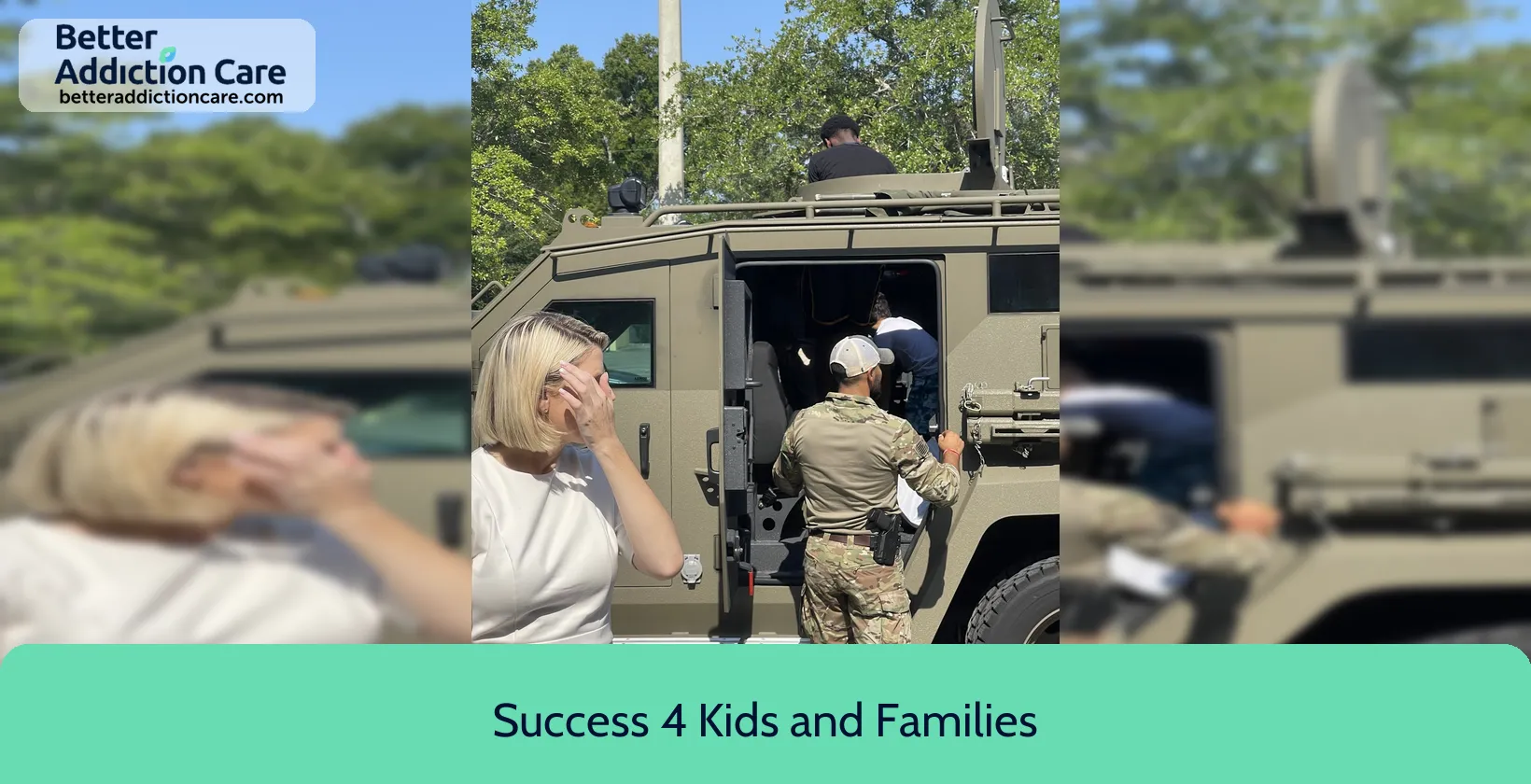
6.56
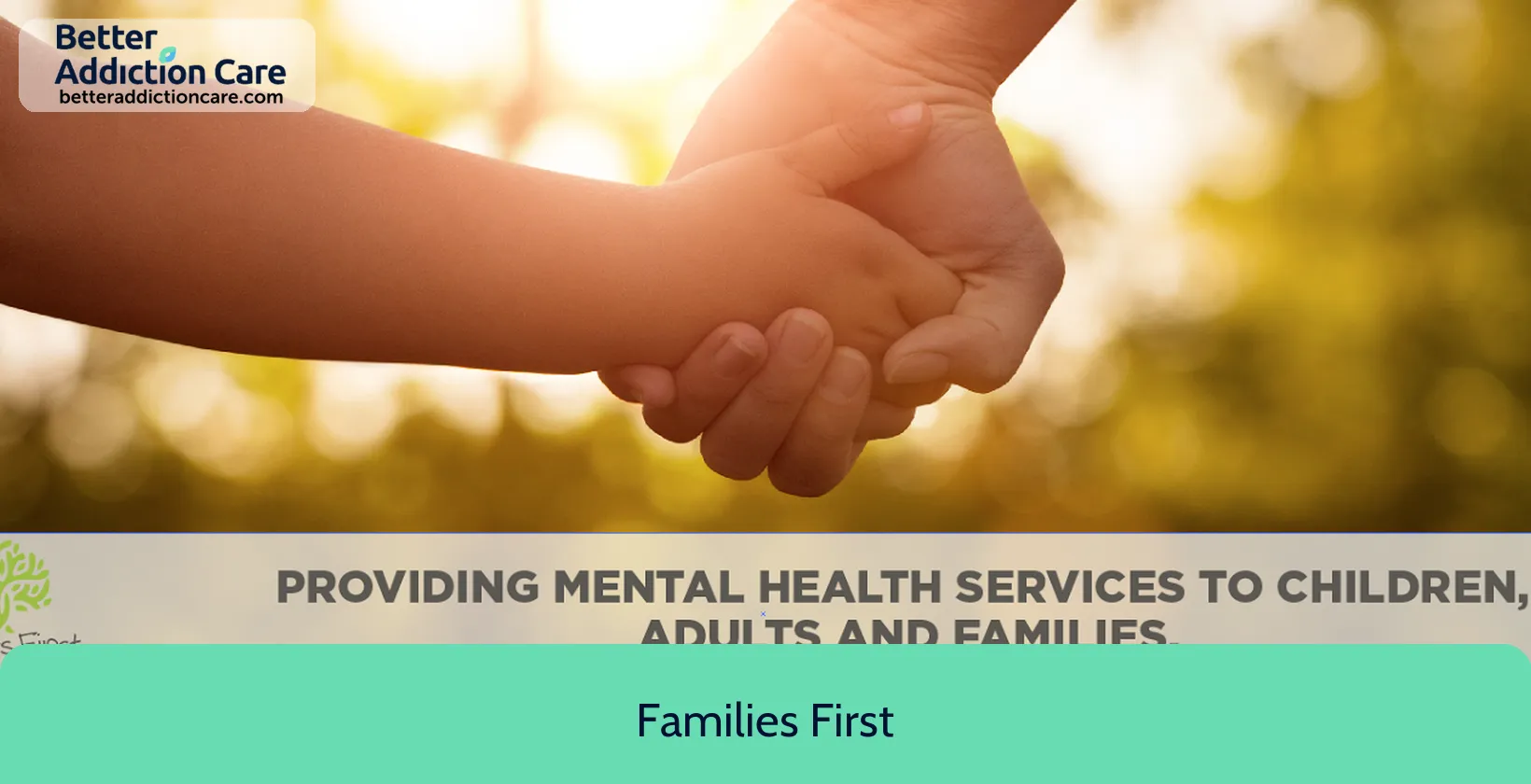
6.59
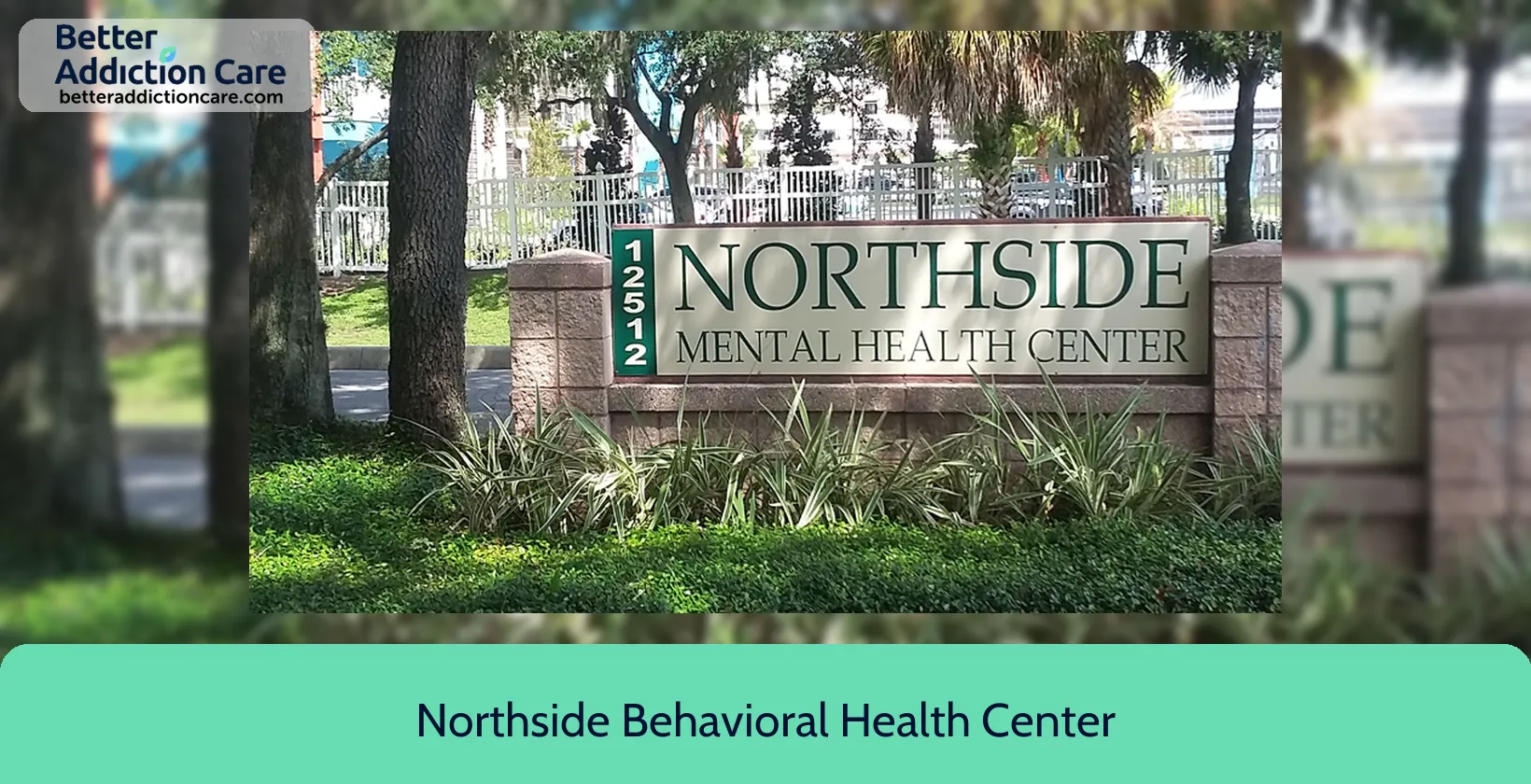
6.65
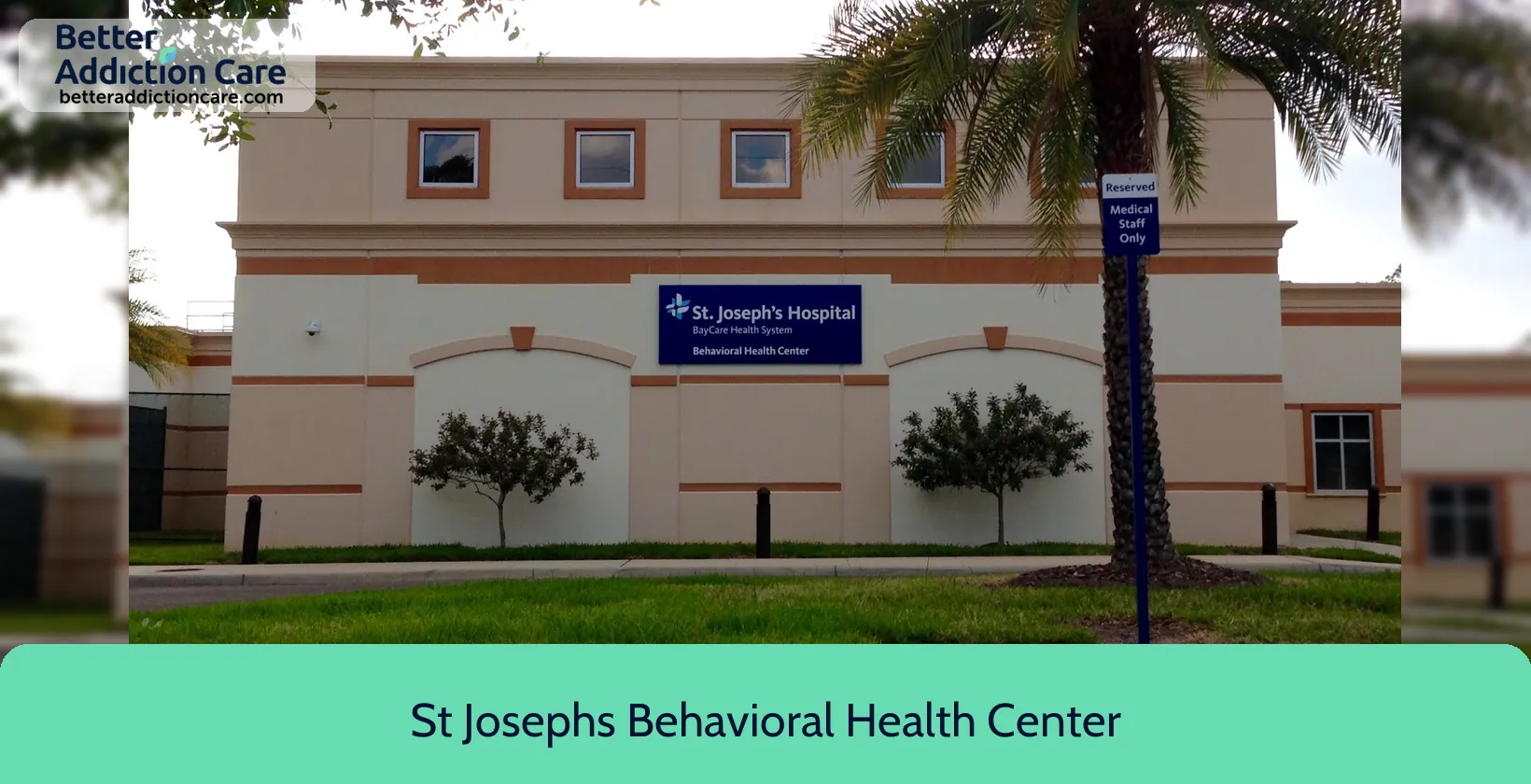
6.56
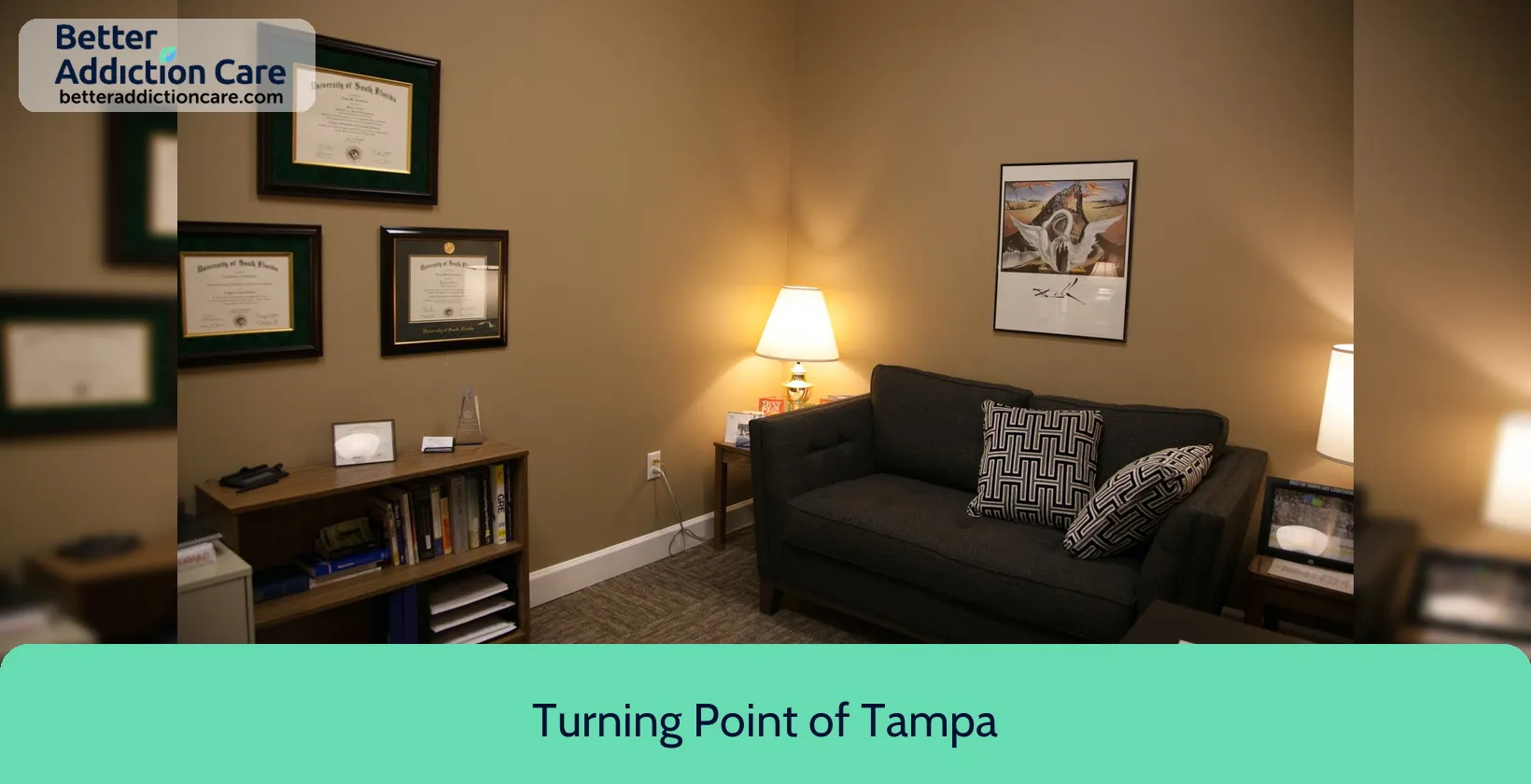
7.08
DISCLAIMER: The facility name, logo and brand are the property and registered trademarks of Turning Point of Tampa, and are being used for identification and informational purposes only. Use of these names, logos and brands shall not imply endorsement. BetterAddictionCare.com is not affiliated with or sponsored by Turning Point of Tampa.
